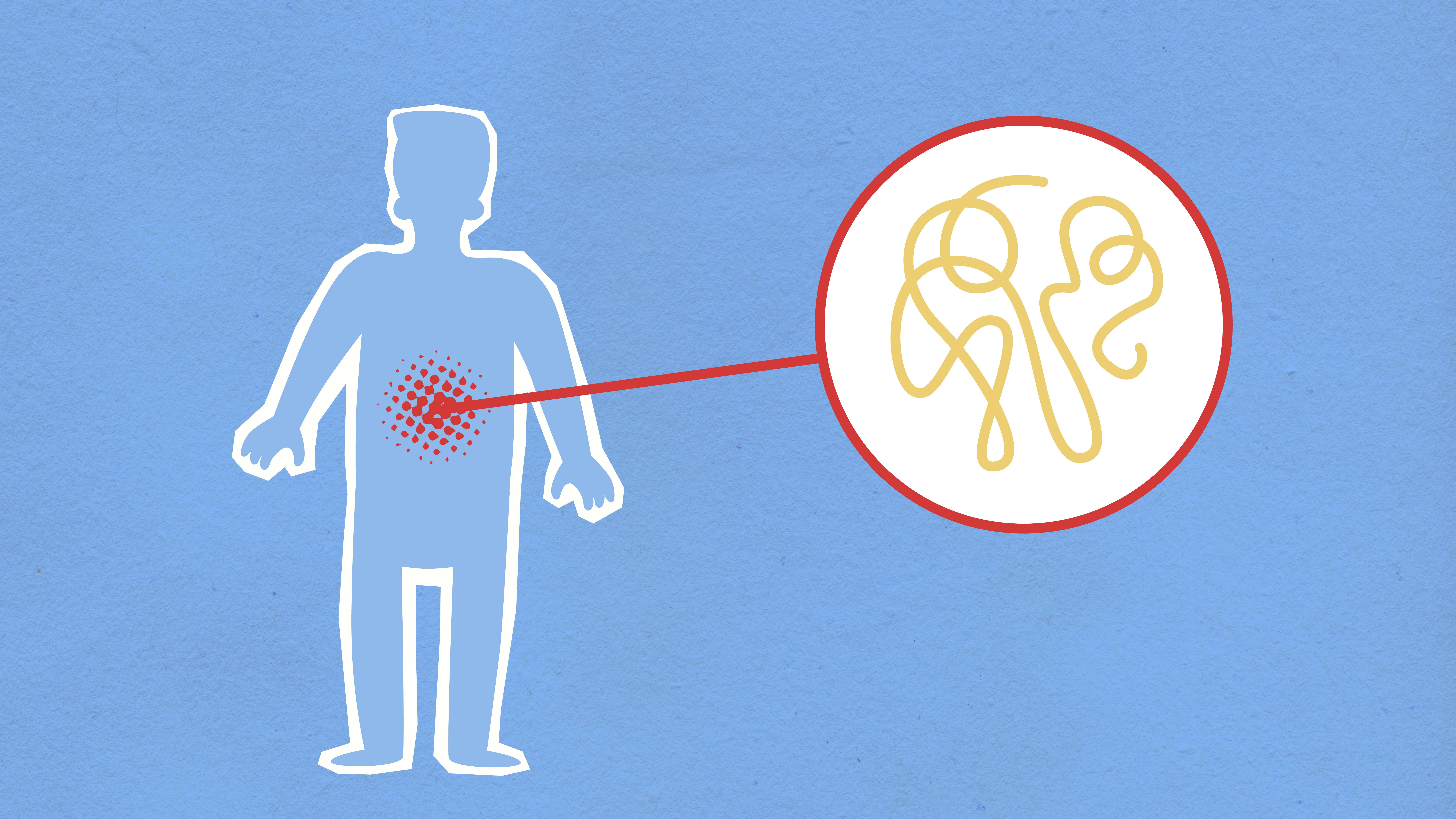Stress is normal these days, but if it stays for weeks or months, it turns into chronic stress. Unlike short bursts of pressure that push us to act, chronic stress slowly drains energy, disrupts focus, and takes a toll on both body and mind.
Many people don’t even realize they’re living with it until the symptoms pile up. In this article, we’ll explore the top warning signs of chronic stress, so you can recognize them early and take small, mindful steps to protect your overall well-being.
1. Constant Fatigue and Low Energy
One of the clearest signs of chronic stress is feeling exhausted all the time. It’s not the same as being tired after a busy day — this fatigue lingers even after you’ve had enough sleep or taken rest. Stress hormones keep your body on “high alert,” which disrupts your natural energy rhythm. Over time, this constant pressure leaves you drained, sluggish, and unable to recharge fully.

You might notice that everyday tasks feel heavier than usual, or that you need extra coffee or stimulants just to get through the day. Fatigue caused by stress isn’t just physical; it often comes with mental exhaustion too — difficulty focusing, lack of motivation, and feeling like your brain is running on empty.
No matter how much I slept, I still woke up tired until I started making small lifestyle shifts like mindful breathing, short walks, or setting boundaries with screen time.
- Prevalence: Fatigue affects approximately 16.4% of the general population, with higher rates observed in individuals with mental or behavioral disorders (65.9%) .Nature
- Mechanism: Chronic stress leads to elevated cortisol levels, disrupting sleep patterns and energy regulation, resulting in persistent tiredness.
2. Frequent Headaches or Muscle Tension
Stress often shows up physically in the form of tight shoulders, stiff neck, or regular headaches. Chronic stress doesn’t just stay in the mind — it often settles into the body. One of the most common physical signs is recurring headaches or a feeling of tightness in the muscles, especially around the shoulders, neck, and jaw. When your body stays in a constant “fight or flight” mode, your muscles unconsciously tense up as a way of bracing against pressure.

Over time, this can lead to tension headaches, migraines, or even chronic body pain. Signs of chronic stress – You might notice stiffness after long hours at work, unexplained aches, or a heavy feeling in your head by the end of the day. Stress-related muscle tension can also cause clenching of the jaw or grinding teeth at night, which only adds to the discomfort.
For me, headaches creeping in on busy days or shoulder stiffness after being stuck at the desk was the main problem. Small mindful practices like gentle stretching, deep breathing, or short screen breaks made a noticeable difference.
- Tension-Type Headaches: Affecting 15–20% of the population, these headaches are often linked to stress-induced muscle contractions in the neck and scalp .Medscape+1
- Muscle Tension: Chronic stress causes prolonged muscle contraction, leading to stiffness and pain, particularly in the neck, shoulders, and jaw .
3. Trouble Sleeping (Insomnia or Restless Sleep)
Difficulty falling asleep, staying asleep, or waking up tired are common red flags. Sleep is supposed to be the body’s natural reset button, but signs of chronic stress often interrupts this process. When the mind is constantly racing with unfinished tasks, worries, or overthinking, it becomes difficult to fall asleep or stay asleep through the night. Even if you do sleep, you may wake up feeling unrefreshed, as if your body never truly entered deep rest.

Stress hormones like cortisol interfere with the sleep cycle, keeping your system in a “wired but tired” state. This can show up as tossing and turning, waking up in the middle of the night, or needing much longer to drift off. Over time, poor sleep creates a vicious cycle: the less you sleep, the harder it becomes for your body to handle stress, which then makes your stress levels climb even higher.
I’ve experienced sleepless nights creeping in during stressful periods, and small shifts — like reducing screen time before bed, keeping a simple bedtime routine, or practicing mindful breathing — slowly helped improve rest quality.
- Prevalence: Sleep disturbances are common among stressed individuals, with studies indicating that 22% to 43% experience poor sleep quality due to stress .American Psychological Association
- Mechanism: Elevated cortisol levels and increased sympathetic nervous system activity during stress interfere with the body’s ability to initiate and maintain sleep.
4. Digestive Issues
From bloating to indigestion, chronic stress directly impacts the gut and disrupts digestion. Your gut is often called the “second brain” because it’s highly sensitive to emotional and mental states. Under chronic stress, the body diverts energy away from digestion and keeps that person in survival mode. This imbalance can trigger issues like bloating, indigestion, constipation, or even sudden diarrhea. For some people, these signs of chronic stress also worsens conditions like acidity or irritable bowel symptoms.

These digestive problems aren’t always linked to what you eat — sometimes, it’s about how stressed you feel while eating or how your body reacts afterward. You might notice that stressful days leave you with a heavy stomach, loss of appetite, or sudden cravings for junk food. Over time, stress starts to disrupt the gut microbiome, making digestion even more sluggish and uncomfortable.
My eating habits or digestion changed during stressful phases — feeling bloated after even simple meals or skipping hunger cues altogether. Mindful eating, chewing slowly, and taking a few deep breaths before meals made a surprising difference in calming the gut.
- Prevalence: Functional gastrointestinal disorders, such as irritable bowel syndrome (IBS), affect 35% to 70% of individuals at some point in their lives, with stress being a significant contributing factor .Harvard Health
- Mechanism: Stress alters gut motility and increases gut permeability, leading to symptoms like bloating, diarrhea, and constipation .Physoc Online Library
5. Weakened Immune System
Getting sick more often or taking longer to recover can be a sign your body is under constant stress. Chronic stress can quietly weaken your body’s natural defenses, leaving you more vulnerable to colds, infections, and slower recovery times. It’s really important to check for signs of chronic stress as high stress levels for a long time are really bad and compromises the immune system’s response because stress hormones like cortisol suppress immune function.
You might notice that you catch minor illnesses more often than usual, take longer to recover from common infections, or feel run-down even after small bouts of sickness. This doesn’t mean stress is the only factor — but prolonged stress definitely makes your body less resilient.

I used to notice frequent sniffles or longer recovery times during a particularly stressful phase. Simple lifestyle shifts like prioritizing sleep, staying hydrated, gentle movement, and mindful relaxation helped support my immunity over time. If you want to know more about me and my journey, click this link – About Us.
- Impact: Chronic stress suppresses both cellular and humoral immunity, increasing susceptibility to infections and impairing the body’s ability to fight off illnesses .ScienceDirect
- Mechanism: Elevated cortisol levels during stress can reduce the production of immune cells and increase inflammation, compromising immune function .The Supportive Care
6. Mood Swings and Irritability
Stress overload can make small things feel overwhelming, leading to irritability or emotional outbursts. Chronic stress have a huge impact on our emotions. A lot of people ignore signs of chronic stress. When stress lingers, it can make you feel unusually irritable, impatient, or emotionally sensitive. Small triggers that normally wouldn’t bother you may suddenly feel overwhelming, leading to frequent mood swings or emotional outbursts.

This happens because prolonged stress alters the balance of brain chemicals responsible for regulating mood, such as serotonin and dopamine. Over time, the emotional toll can affect relationships, work performance, and even your overall sense of well-being.
I noticed subtle changes — perhaps snapping more easily or feeling a constant low-level frustration. Mindful practices like journaling, short breaks, or simple breathing exercises helped me regain my emotional balance and defeat these signs of chronic stress.
- Prevalence: Approximately 20% of individuals report experiencing unexpected mood swings or irritability during periods of high stress .American Psychological Association
- Mechanism: Stress affects neurotransmitter systems, including serotonin and dopamine, leading to mood disturbances and emotional instability.
7. Difficulty Concentrating
Chronic stress often fogs the mind, making it hard to focus, remember details, or stay productive. You might find yourself forgetting simple tasks, re-reading the same paragraph without absorbing it, or feeling mentally “scattered.” This is sometimes called “brain fog,” and it’s a direct result of stress hormones like cortisol interfering with memory and cognitive function.

Over time, this difficulty concentrating can make work, studies, or even daily chores feel overwhelming. Tasks take longer to complete, and mental fatigue can set in quickly, creating a cycle where stress worsens because you can’t focus efficiently. So it’s better to check for early signs of chronic stress before it’s too late.
I struggled to complete tasks I usually did easily. Habits like breaking work into small chunks, practicing mindful pauses, or short walks helped my brain reset and regain clarity.
- Impact: Chronic stress impairs attention and memory, making it challenging to focus on tasks and process information effectively .
- Mechanism: Elevated cortisol levels can disrupt neural circuits involved in cognition, leading to decreased concentration and mental clarity .PMC
8. Loss of Interest in Daily Activities
Chronic stress doesn’t just affect your mind and body — it can also sap your motivation and enthusiasm for activities you normally enjoy. Hobbies, social interactions, or even routine tasks may start to feel like chores, and you may find yourself withdrawing from things that once brought joy.
This loss of interest is often linked to mental fatigue and emotional burnout caused by ongoing stress. When your mind is constantly occupied with worries or tension, there’s little energy left for enjoyment or engagement in daily life.

Stress made me notice a lack of excitement or motivation for things I usually loved — perhaps skipping a hobby or avoiding social gatherings. To improve my signs of chronic stress, I started incorporating small mindful habits like dedicating short periods to enjoyable activities or focusing on one task at a time, gradually reignited interest and balanced my mental state.
- Prevalence: Long-term stress can lead to burnout, characterized by a loss of motivation and withdrawal from previously enjoyable activities .Healthdirect
- Mechanism: Chronic stress leads to emotional exhaustion and a diminished sense of accomplishment, resulting in decreased interest in daily activities .Healthdirect
9. Unexplained Changes in Appetite or Weight
Stress may cause overeating, loss of appetite, or sudden shifts in body weight. Chronic stress can disrupt your body’s natural hunger signals, leading to sudden changes in appetite or weight. Ignoring signs of chronic stress leads to irreversible damage. Some people may overeat, turning to comfort foods like sugar or carbs for temporary relief, while others may lose interest in eating altogether, skipping meals or feeling nauseated.
These fluctuations aren’t always linked to diet or exercise—they’re often your body’s response to prolonged stress hormones like cortisol, which affect metabolism and hunger cues. Over time, these changes can impact energy levels, mood, and overall health.

I noticed stress affecting my eating habits — for instance, craving unhealthy snacks during tense periods or skipping meals when overwhelmed. Mindful eating, meal planning, and noticing true hunger signals helped restore balance naturally.
- Impact: Stress can lead to either increased or decreased appetite, contributing to weight gain or loss .Health
- Mechanism: Stress-induced changes in cortisol and other hormones can affect hunger cues and metabolism, leading to alterations in eating behaviors .
10. Increased Reliance on Caffeine, Sugar or Unhealthy Habits
When stressed, many people turn to stimulants or comfort foods as a coping mechanism. When stress becomes chronic, many people unconsciously turn to quick fixes for comfort or energy. This can include drinking more coffee, sugary drinks, snacking on junk food, or indulging in habits like smoking or excessive screen time. While these behaviors might provide temporary relief, they often create a cycle where the body becomes more dependent on them, and stress levels continue to climb.

This reliance is your body’s way of coping with the constant “fight or flight” state induced by stress. Over time, it can affect energy, mood, and overall health, making it harder to break free from the pattern without conscious effort. So it’s better to consult a doctor when you notice early signs of chronic stress.
I noticed myself reaching for extra caffeine or sugary snacks during high-stress periods and mindful alternatives — like short walks, deep breathing, or hydration — helped me manage cravings without worsening stress.
- Prevalence: Individuals under chronic stress often turn to substances like caffeine and sugar for temporary relief, leading to unhealthy coping mechanisms .
- Mechanism: Stress activates the reward system in the brain, making individuals more likely to seek out substances that provide short-term pleasure or energy .



